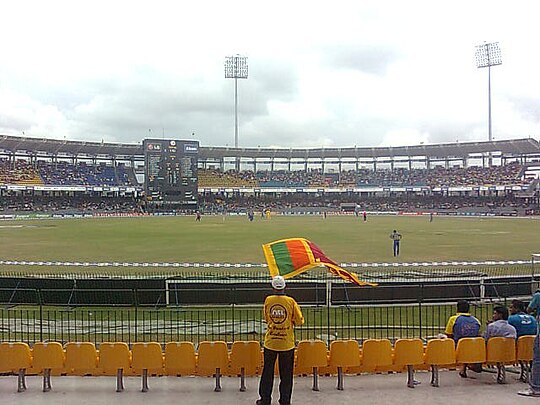
The fissures within the Asian Cricket Council (ACC) have become visible again with a tug of war going on regarding the venue for the last five Super 4s matches and final in the ongoing Asia Cup. The R Premadasa Stadium in Colombo was slated to host the games, but the schedule has had to be reviewed as a result of the torrential rains that lashed Colombo last week. Even the marquee match-up between India and Pakistan in Pallekele, on the outskirts of Kandy, had to be abandoned as a result.
The Mahinda Rajapaksa International Stadium in Hambantota – built with much fanfare prior to the 2011 World Cup – was considered as an alternate venue, and the Pakistan Cricket Board (PCB), the designated hosts for the event, were prepared to go along with that. What the PCB didn’t want as hosts was another washout when India and Pakistan meet in the Super 4s on Sunday, September 10, potentially damaging the prospects of both teams contesting a sold-out final.
But while the other boards were on board with the shift in venue, the Board of Control for Cricket in India (BCCI) are apparently pushing for the games to stay in Colombo. Hambantota presents a number of logistical issues. Once a minor port, the former president’s hometown was built up with Chinese funds over a decade ago. But since the Rajapaksas’ fall from grace, the port, a large airport and the cricket stadium all stand as white elephants that testify to the financial ruin brought about by those loans.
Hambantota has hosted just six ODIs in the past five years, and only four of those have involved the host nation. It’s poorly connected, has very few accommodation options, and the ground is literally in the middle of nowhere. Whenever the Indian and Pakistani cricket teams are around, security issues come to the fore, and the BCCI may well have apprehensions about the team playing there as opposed to Colombo, where the law enforcement agencies are far more used to high-level security details.
There is also the small matter of fan convenience. Thousands have already blocked their tickets, and booked flights and hotels for the matches in Colombo. Shifting the games at the 11th hour would throw those plans into disarray. It can be safely assumed that only a tiny fraction of those travelling fans would make it to Hambantota.
On the flip side, the weather forecasts for Colombo remain grim. Next Wednesday, September 13, is the first day when the chances of rain are rated at less than 50 percent. The current prediction is for rain on Sunday – a 60 percent chance – and another India-Pakistan washout. One possible solution for the ACC would be to have earlier starts – maybe 1:30pm instead of 3pm – and allow the games to be extended under lights so that as many overs can be fitted in as possible. Though it’s built on a swamp that monks once used to row across, the Premadasa has excellent drainage, and Sri Lanka’s ground staff have already shown their capabilities by getting the surfaces ready as quickly as possible after downpours.
The months leading up to this tournament were dominated by India’s refusal to play in Pakistan, and Pakistan insisting on hosting at least a few of the matches. Having Sri Lanka as a supplementary host was the pragmatic solution, especially given the infernal heat in the Middle East at this time of year. September is also not usually a month of downpours in Sri Lanka. But it seems that this controversy-ridden edition of the Asia Cup just can’t catch a break.




